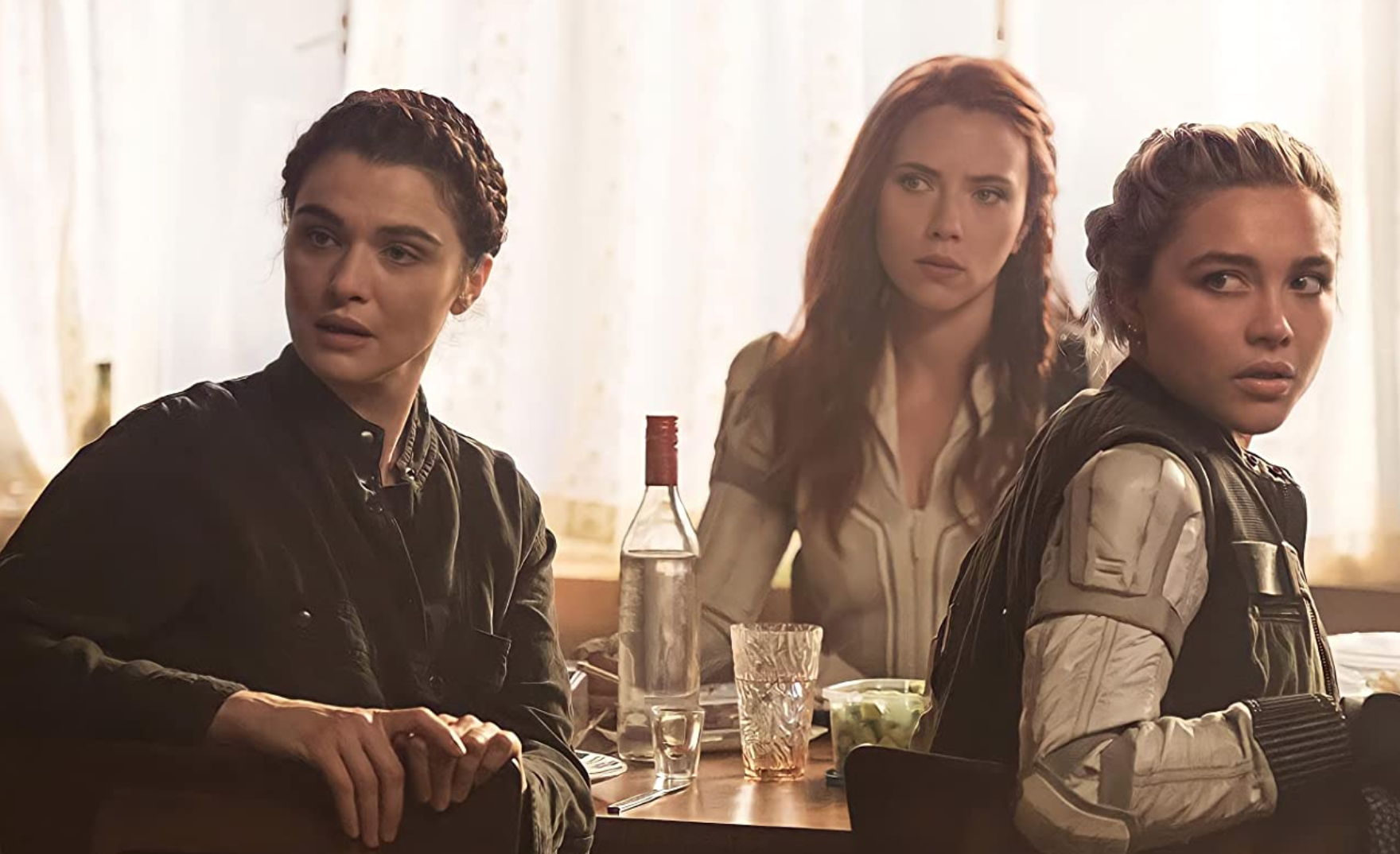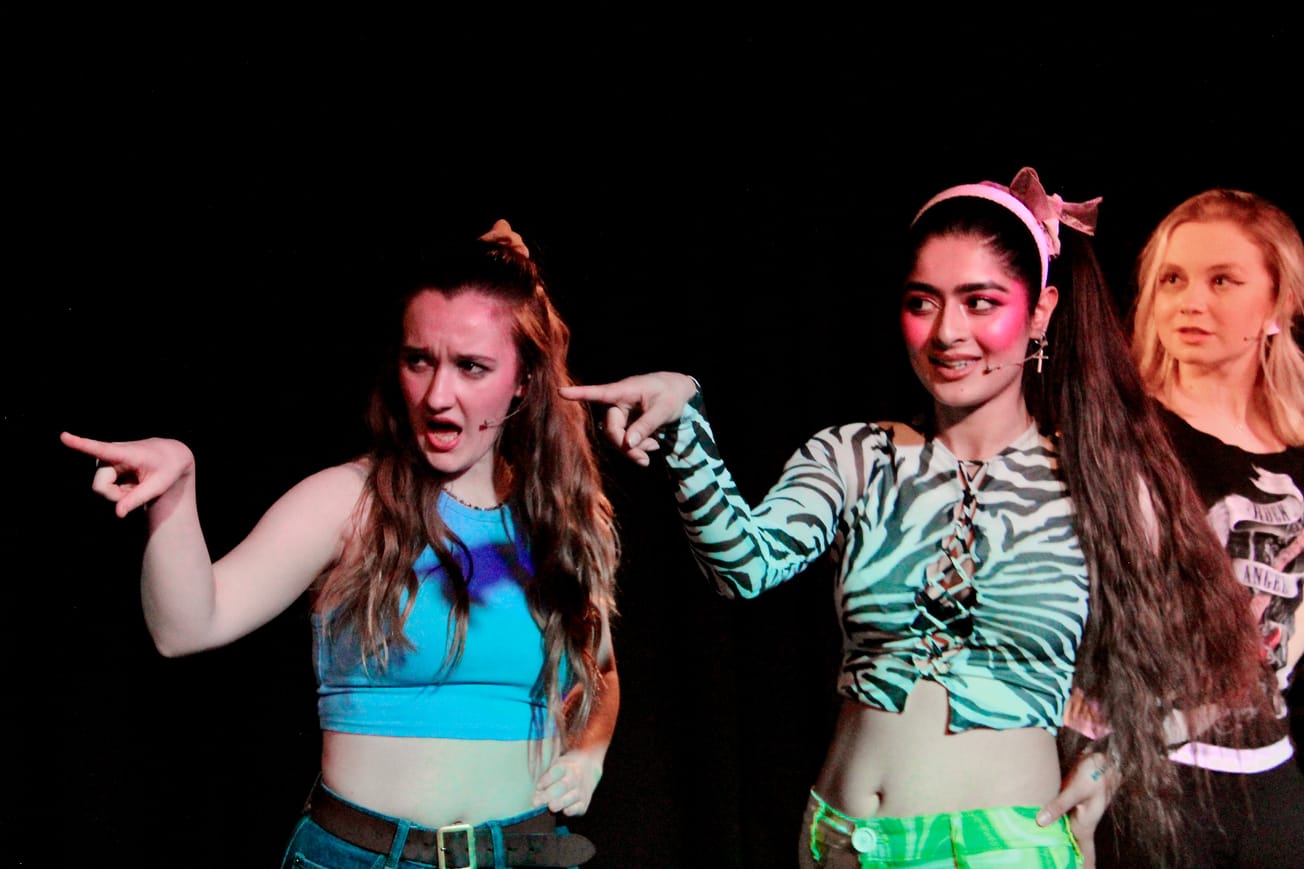By Joe Burns, English and French, Second Year
Scarlett Johansson’s Black Widow has been a mainstay of the Marvel Cinematic Universe since 2010, when her character was first introduced in Iron Man 2. The sequel to the franchise’s debutant blockbuster hit, it was only the third release in a multi-billion-dollar filmography that currently comprises twenty-four films.
The character has been a fan-favourite for well over a decade, featuring in seven Marvel projects between 2010 and 2019. It may therefore come as a surprise that it took Marvel Studios until 2021, eleven years after Johansson’s first appearance as the character, to release her titular solo film.

Black Widow (2021) explores the dark history and fractured childhood that Natasha experienced before she became an Avenger, culminating in a bid to dismantle the forces behind the ‘Red Room’ in which she was dehumanised and weaponised as a young girl. In Avengers: Endgame (2019), Natasha heroically sacrificed herself to reverse the fallout of “Avengers: Infinity War”, when half of all life in the universe was wiped out. Black Widow is therefore a prequel, canonically set just after Captain America: Civil War (2016), where Natasha became a fugitive for breaking the Sokovia Accords (the United Nations’ superhero legislation).
It does not require intense analysis to recognise the pertinence of a movie that portrays the systemic exploitation of women
As Natasha once again becomes embroiled in the conspiratorial network that previously governed her life, she reconnects with her surrogate family: her adopted sister Yelena (Florence Pugh), her adoptive father Alexei (David Harbour) and her adoptive mother Melina (Rachel Weisz). Harbour’s character is also known as the Red Guardian, an enhanced super-soldier who served as the USSR’s Cold War response to Captain America.

Harbour and Weisz deliver funny and often genuinely heart-warming performances, but it is Pugh who steals the show, capitalising on incredible chemistry with Scarlett Johansson to perfectly embody the persona of a goofy, yet infinitely capable, younger sister. Despite the moments of levity that have become characteristic of the MCU, the film does have its more profound aspects. It does not require intense analysis to recognise the pertinence of a movie that portrays the systemic exploitation of women, and it is particularly noteworthy that this takes place in Black Widow’s solo film, as Johansson has repeatedly lamented the unnecessary sexualisation of her character throughout her career.
Black Widow revisits information that was given in Avengers: Age of Ultron (2015), that all women put through the Black Widow programme undergo an involuntary hysterectomy, highlighting the FGM and sexual abuse that remains prevalent today. Evidently, the film has much to offer beyond action-packed sequences and comedic timing, and has been well-received by critics and the public alike, grossing over $314 million worldwide, becoming the fifth highest grossing film of 2021; by almost every standard, Black Widow is an overwhelming success.

Despite the many positive elements of the film, it is difficult to ignore the chronological issues the film holds. With the film’s release being delayed by over a year due to the Covid-19 pandemic, the film's release already feels largely anticlimactic, however the characters aforementioned fate puts a further screw in the works.
Granted, its designation as the first movie in Phase Four of the MCU permits the return of these now established characters, but it would have been far more impactful if it had been released immediately after Captain America: Civil War. It would have certainly added more poignancy to her death and, more than anything, would have established Marvel Studios as daring and progressive, rather than an imitator that prioritises commercial security over true representation. As such, the film’s message arrives a little diluted, and renders Black Widow a solid addition to the MCU that is, ultimately, rather anachronistic.
Featured Image: IMDB
What are your thoughts on the much delayed blockbuster?









